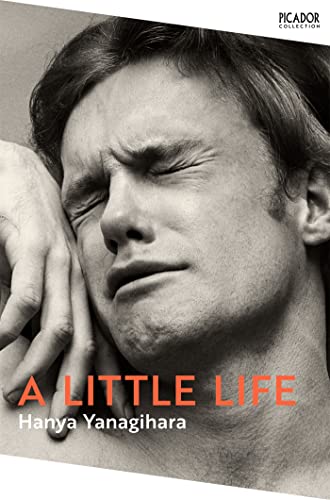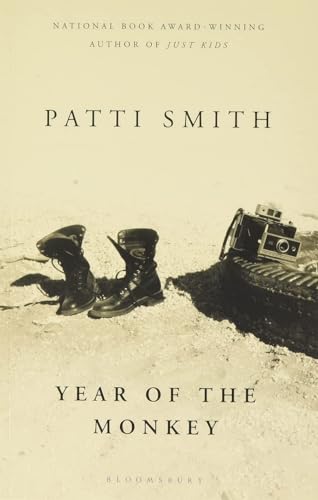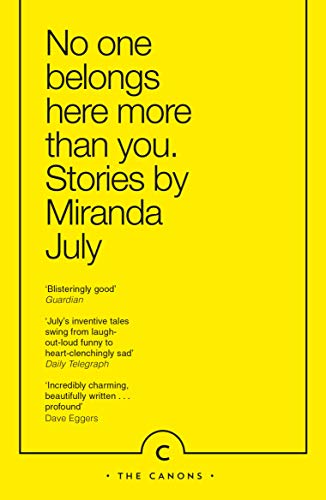Hanya Yanagihara "A Little Life" (Picador)

I’ve just finished reading A Little Life, and am not sure how I feel about it. I probably should wait a few days to digest it before writing anything, but I doubt I will be any clearer in my mind then.
Essentially the story is about four college friends and their wider social circle, and it follows them throughout their lives. At the epicentre of the story and their lives is Jude St Francis. Brilliant, beautiful, talented and very very broken. Jude never talks to people about his childhood – and when we find out about it, it’s not hard to see why – but it is gradually revealed throughout the book. He has a problem with his legs, so sometimes he needs to use a stick and sometimes he needs a wheelchair. He has no biological family, and is a huge mystery to everyone else. But they love him and accept him just the same. His best friends, Willem, Malcolm and JB all have their own issues, but it’s clear that this is Jude’s story.
There were certain characters I liked; out of the four friends, Malcolm was easily my favorite – but my favorites were ones outside of the core group. Harold and Julia, the older couple who come to mean so much to Jude and vice versa were my absolute favourites.
Here’s where I feel bad though – I really really did not like Jude. When his terrible childhood experiences are revealed – to the reader at least, if not the other characters – I found it hard to imagine such a catalogue of horror happening to one person. (The author has admitted that she did not do research into this issue, and I think it does show.) And despite understanding why Jude has so many problems trusting people in later life, I found him to be tiring and exhausting to read about, and incredibly selfish. It’s hard to see why so many people loved and cared about him, or stuck around, because he generally treated most of the people who tried to help him pretty badly. I think he was supposed to be a sympathetic protagonist, but it didn’t come off that way.
The writing is often a bit overblown and too ‘wordy’ but despite this, I still kept reading and enjoyed parts of the book. If I didn’t feel compelled to finish every book I start though, I may have given up by about halfway. It’s not a book to make you feel good; in fact, it left me on a bit of a downer. There’s a lot of hype about it and I wanted to see for myself what it was all about. It’s not awful, but I won’t be in a rush to read anything else by this author.

I’ve just finished reading A Little Life, and am not sure how I feel about it. I probably should wait a few days to digest it before writing anything, but I doubt I will be any clearer in my mind then.
Essentially the story is about four college friends and their wider social circle, and it follows them throughout their lives. At the epicentre of the story and their lives is Jude St Francis. Brilliant, beautiful, talented and very very broken. Jude never talks to people about his childhood – and when we find out about it, it’s not hard to see why – but it is gradually revealed throughout the book. He has a problem with his legs, so sometimes he needs to use a stick and sometimes he needs a wheelchair. He has no biological family, and is a huge mystery to everyone else. But they love him and accept him just the same. His best friends, Willem, Malcolm and JB all have their own issues, but it’s clear that this is Jude’s story.
There were certain characters I liked; out of the four friends, Malcolm was easily my favorite – but my favorites were ones outside of the core group. Harold and Julia, the older couple who come to mean so much to Jude and vice versa were my absolute favourites.
Here’s where I feel bad though – I really really did not like Jude. When his terrible childhood experiences are revealed – to the reader at least, if not the other characters – I found it hard to imagine such a catalogue of horror happening to one person. (The author has admitted that she did not do research into this issue, and I think it does show.) And despite understanding why Jude has so many problems trusting people in later life, I found him to be tiring and exhausting to read about, and incredibly selfish. It’s hard to see why so many people loved and cared about him, or stuck around, because he generally treated most of the people who tried to help him pretty badly. I think he was supposed to be a sympathetic protagonist, but it didn’t come off that way.
The writing is often a bit overblown and too ‘wordy’ but despite this, I still kept reading and enjoyed parts of the book. If I didn’t feel compelled to finish every book I start though, I may have given up by about halfway. It’s not a book to make you feel good; in fact, it left me on a bit of a downer. There’s a lot of hype about it and I wanted to see for myself what it was all about. It’s not awful, but I won’t be in a rush to read anything else by this author.


